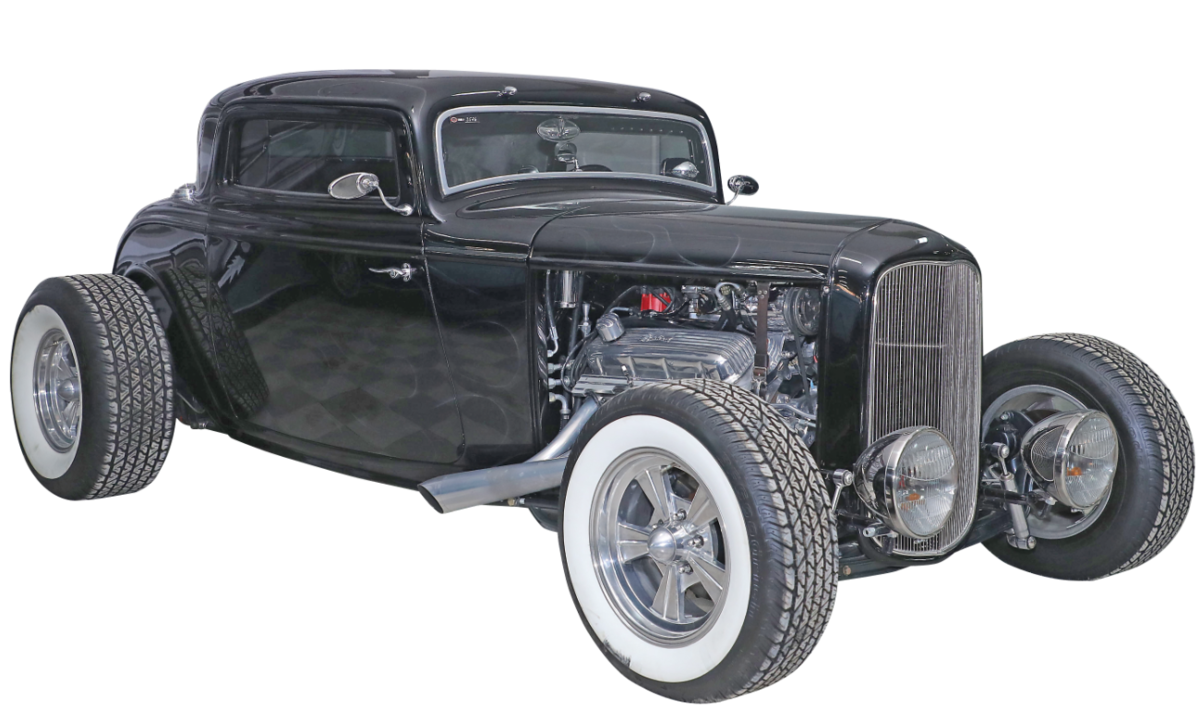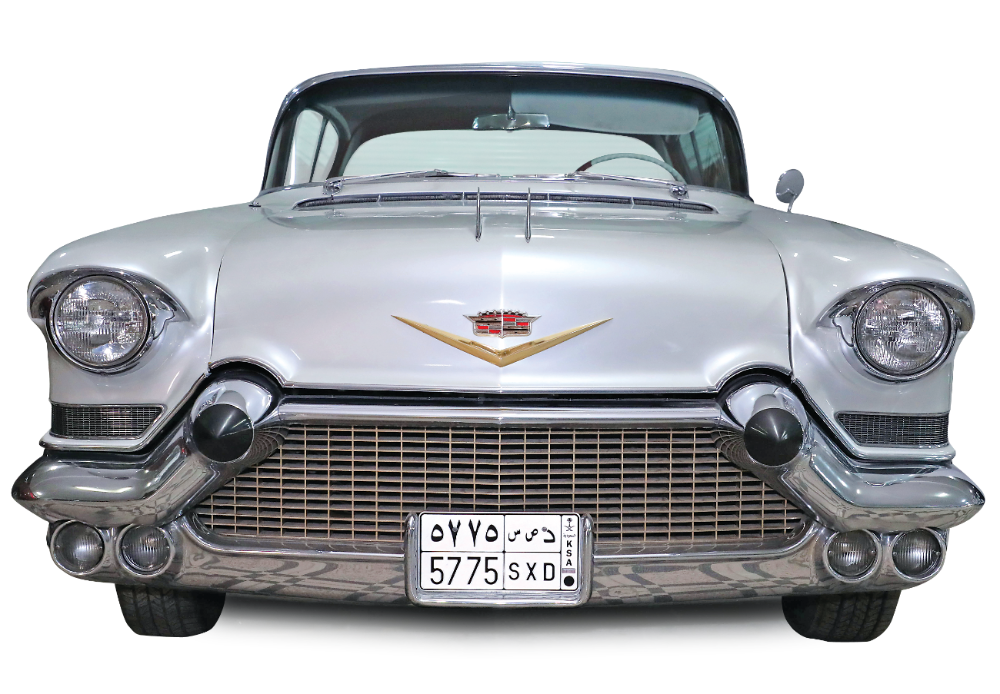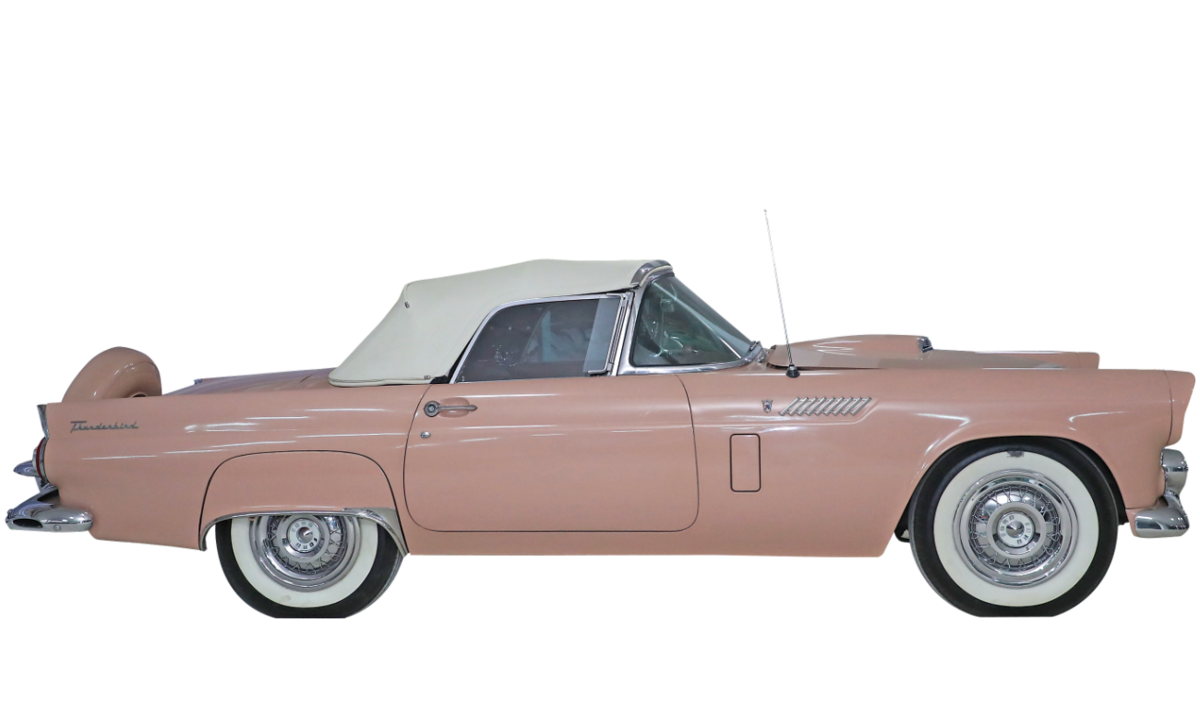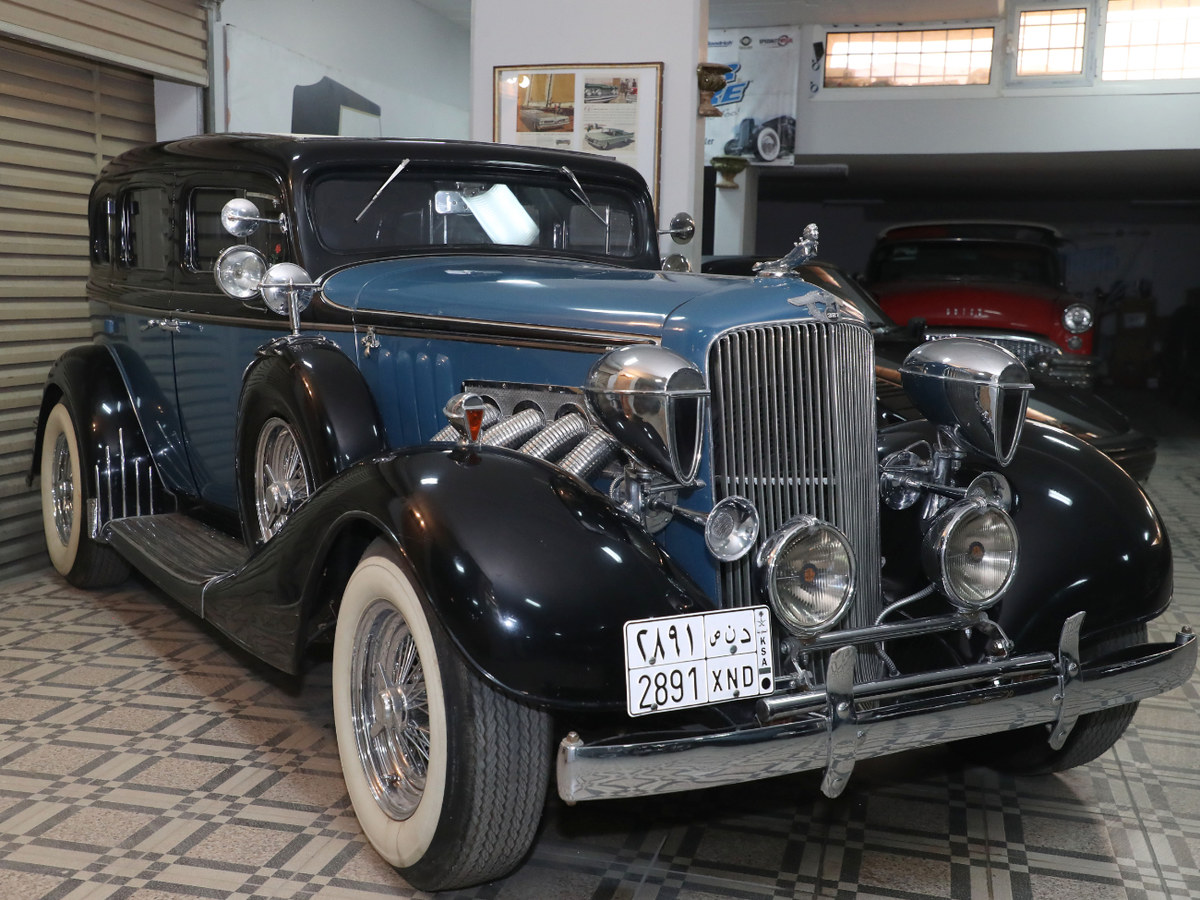MAKKAH: Collecting cars is more than just a hobby for some car enthusiasts, with many seeking to preserve objects that appear to be frozen in time.
Every classic car is a little slice of history that tells a story. It is not simply an automobile, but a personal story of the designer, manufacturer and buyer.
It is also a story of survival, with the automobile industry for decades producing faster, cheaper and economically friendly cars that lack the details of classic vehicles.
Classic cars were created in an analog world where designers used pencil and paper to create elegant shapes and flowing lines, something that is difficult to replicate in the computer-based design world of today.
Dr. Nasser Al-Massari, a retired Saudi academic, turned his love and passion for classic cars into a personal museum at his home in Riyadh, displaying and proudly showcasing to the public a collection of 36 classic vehicles from all over the world, with an estimated value of up to $6.7 million.
Speaking to Arab News, he said that the oldest car he owns dates back to 1929, while the newest was manufactured in 1979. Most are American cars. He repairs and restores them himself, and hosts weekly gatherings with other classic car enthusiasts in the Kingdom’s capital, Riyadh.
His passion for classic cars began while working in Florence, Italy, aged 19, where he ran his father’s company in 1978. While there, he attended the famous Mille Miglia classic and vintage car race and was instantly hooked.
HIGHLIGHTS
• The oldest car dates back to 1929, while the newest was manufactured in 1979. Most are American cars. Dr. Nasser Al-Massari repairs and restores them himself, and hosts weekly gatherings with other classic car enthusiasts in the Kingdom’s.
• His passion for classic cars began while working in Florence, Italy, aged 19, where he ran his father’s company in 1978. While there, he attended the famous Mille Miglia classic and vintage car race and was instantly hooked.
• Al-Massari jokingly described his hobby as ‘luxury car-hunting fever,’ which he said prompted him during his time in LA to use his neighbor’s garage to store newly bought vehicles.
“The beauty of the cars was something else — the lines, the quality finishing was amazing. There was an aesthetic quality to them,” he said.
In 1983, Al-Massari was sent as a scholarship student to the US by King Saud University for his master’s degree in San Diego, California. A year later, he made his first car purchase, buying a 1946 Cadillac Series 62 for $4,600. He drove the beauty from Denver, Colorado, all the way to San Diego.
He then completed a Ph.D. and graduated from the University of California, Los Angeles, in 1989. He attributed the main growth of his collection to his time spent in LA in the early 1980s, when the city was already well known as a playground for rich Hollywood actors and celebrities, as well as a center of trade and industry. Al-Massari jokingly described his hobby as “luxury car-hunting fever,” which he said prompted him during his time in LA to use his neighbor’s garage to store newly bought vehicles.
“Scholarship students in the US have always found hobbies other than their studies. Some loved swimming, hiking, running and various sports, but owning classic cars was something that I loved and which overtook every other sport or hobby,” he said.
For more than 30 years, Al-Massari has bought and sold cars to continuously build and upgrade his collection, but has preserved 36 highly exclusive and rare vehicles, some of which are the sole survivors of a fleet or series.
“It is difficult to say which would be my favorite. It’s like you’re asking me who my favorite child is. But if I had to choose one of all my cars, my favorite has to be the 1929 Cadillac Boattail Speedster. It’s the only one left in the world, and it’s not for sale,” he said, adding: “It’s the bread and butter of cars.”
I owned my first car at the age of 15 and I was very fond of it. I would repair any small malfunction, and I believe that’s when the fire in me sparked.
Dr. Nasser Al-Massari
It could be argued that the dashing two-toned pewter blue and sea blue two-seater Cadillac is the creme de la creme of Al-Massari’s collection, but his beautiful fleet sitting in a cozy 2,000-square-meter garage also includes an impressive assortment of Buicks, Willys, Fiat, Chryslers, Chevrolets and Corvettes. Other notable cars are a pink Ford Thunderbird manufactured in 1956, and a Cadillac Seville, one of only 20, bought from Grandeur Motorcar Company in Florida.
It is clear from his collection that he prefers the Cadillac over others. “Having lived in the US for a long time, it’s the Rolls Royce of US cars, and they’re great,” Al-Massari said.
Having retired from his long career as an academic, his passion is not limited to buying the rare finds, but the fascinating details of each vehicle. Like many modern items, contemporary cars do not always encourage a hands-on approach.
Modern cars are increasingly digital, and their mass-produced parts are often tinker-proof, which Al-Massari finds unappealing.
“The rarer the find, the better. I love looking underneath the hood and working on the cars, and repairing them if need be. Restoring them to their former glory is something I love to do — maintaining them and working with a team of help. I enjoy rolling up my sleeves and working on them myself. Spare parts can be difficult to get — the older the model, the harder they are to find — but with databases, communities, societies, groups and clubs found everywhere today on the internet, you’ll eventually find what you want,” he said.
“I owned my first car at the age of 15 and I was very fond of it. I would repair any small malfunction, and I believe that’s when the fire in me sparked.”
And despite his countless purchases of rare classic cars, Al-Massari still finds a thrill in buying a rare beauty.
He told Arab News that he is on a constant hunt at car auctions worldwide and keeps a close eye on the rise and fall of prices, adding that he would like to convert his collection into a proper asset, like real estate and stocks. Al-Massari is now aiming to own up to 50 cars on the condition they are among the rarest in the world, but the competition is fierce.
“Acquiring rare cars can be a tough competition, especially with amateurs from around the world, traders and the wealthy. Some cars are worth $500,000 that could suddenly see a jump to more than $2 million due to competition,” he said.
Al-Massari also wants to turn the garage into an official museum after obtaining the proper permits. Since 2014, visitors at the Granada Market in Riyadh have ogled the finest of Al-Massari’s collection as he and a group of classic car enthusiasts, who formed a group called “Cars and Coffee,” showcase their beauties at the open market every Friday morning.
“I still take my cars out for a joyride once a week each. A car is made to be driven, not displayed,” he said.
































